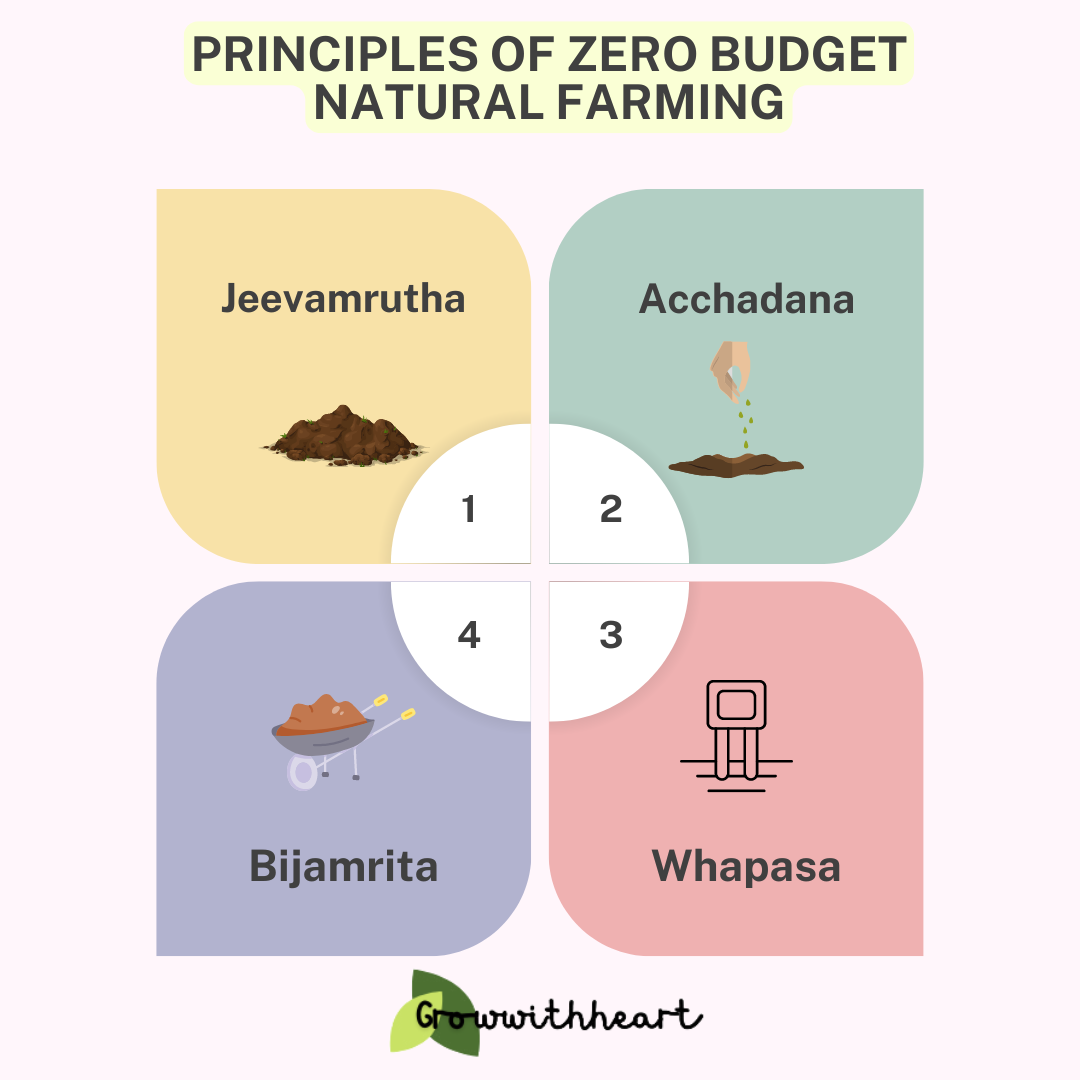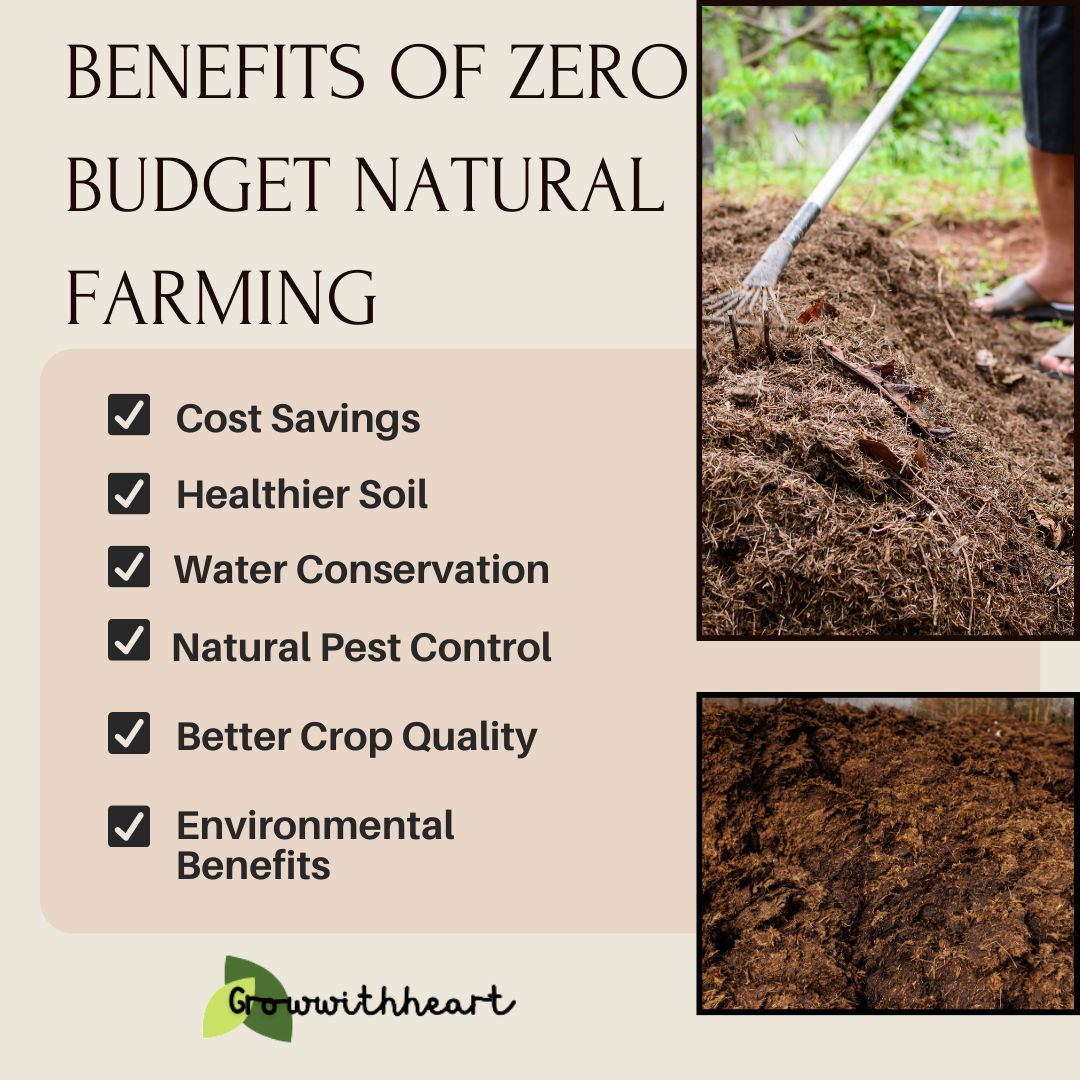Introduction to Zero Budget Natural Farming (ZBNF)
Farming often requires a lot of money for things like fertilizers, pesticides, and seeds. For many farmers, this becomes a problem because they have to take loans, which can lead to debt.
Zero Budget Natural Farming (ZBNF) offers a solution to this problem. ZBNF is a farming method that allows farmers to grow crops without spending much money. The idea is to use natural resources available on the farm instead of buying expensive chemicals.
ZBNF was developed by Subhash Palekar, an Indian farmer and agricultural scientist. His goal was to help farmers reduce their costs and grow healthy crops naturally.
This method encourages farmers to rely on simple, natural inputs like cow dung, cow urine, and plant residues to keep their soil healthy and boost crop production.
In this beginner’s guide, we will explore what ZBNF is, how it works, and how farmers can benefit from using this method.
What is Zero Budget Natural Farming?
Zero Budget Natural Farming is a farming method that focuses on using natural inputs instead of chemical fertilizers and pesticides.
The idea behind ZBNF is that farming can be done at almost no cost, meaning “zero budget.” Farmers use natural materials found on their farms to improve soil health, grow crops, and protect plants from pests.
The term “natural farming” refers to the use of organic and biological processes to grow crops. ZBNF does not involve the use of synthetic chemicals, which can harm the environment and make farming more expensive. Instead, it promotes the use of cow dung, urine, and other natural substances that are easily available on most farms.
This makes ZBNF affordable and eco-friendly, especially for small-scale farmers.
ZBNF has gained popularity in India and other countries where farming costs have become a significant burden for farmers. It offers a practical solution for those who want to farm in a way that is both cost-effective and sustainable.
Principles of Zero Budget Natural Farming
Zero Budget Natural Farming is based on four main principles. These principles focus on improving soil health, using natural inputs, and promoting sustainable farming practices. Let’s take a closer look at each of these principles:

1. Jeevamrutha: Natural Fertilizer
One of the key principles of ZBNF is the use of Jeevamrutha, a natural fertilizer made from cow dung, cow urine, jaggery and pulse flour. Jeevamrutha is a fermented mixture that helps increase the number of microorganisms in the soil.
These microorganisms improve soil fertility by breaking down organic matter and releasing nutrients for plants.
Jeevamrutha is an easy and cost-effective way to keep the soil healthy. Farmers apply this mixture to their fields regularly to improve soil quality without spending money on chemical fertilizers.
2. Bijamrita: Seed Treatment
In ZBNF, seeds are treated with a natural solution called Bijamrita. Bijamrita is made from cow dung, cow urine, lime, and water. This mixture is used to coat seeds before planting, which helps protect them from diseases and pests.
The natural treatment ensures that the seeds grow into healthy plants without the need for chemical seed treatments.
3. Acchadana: Mulching
Acchadana, or mulching, is the process of covering the soil with organic material like straw, dry leaves, or crop residues. Mulching helps preserve soil moisture, prevent weeds, and reduce soil erosion. Over time, the mulch decomposes and adds nutrients to the soil, improving its health.
By using mulch, farmers can reduce their water needs and protect their crops from extreme weather conditions like drought. Mulching is an essential practice in ZBNF because it keeps the soil moist and fertile.
4. Whapasa: Soil Moisture Management
Whapasa refers to maintaining the right balance of air and moisture in the soil. Instead of watering the crops frequently, ZBNF encourages farmers to water the plants only when necessary to maintain the correct moisture level.
This practice conserves water and ensures that the plants receive enough air and oxygen.
By practicing Whapasa, farmers can avoid over-watering, which can damage the crops and cause soil compaction. Proper soil moisture management is crucial for growing healthy plants.
Benefits of Zero Budget Natural Farming
There are several benefits to using Zero Budget Natural Farming, both for farmers and the environment. Below are some of the most important advantages:

1. Cost Savings
One of the biggest benefits of ZBNF is that it helps farmers save money. Traditional farming methods often require purchasing expensive fertilizers, pesticides, and seeds. In contrast, ZBNF relies on natural resources available on the farm, such as cow dung and plant residues.
This means farmers can grow crops without spending much money on external inputs.
By reducing their farming costs, farmers can avoid taking loans and getting into debt. This is especially important for small-scale farmers who may struggle to afford chemical inputs.
2. Healthier Soil
ZBNF improves soil health by encouraging the growth of beneficial microorganisms. These microorganisms break down organic matter and release nutrients that plants need to grow.
Over time, the soil becomes more fertile and balanced, making it easier to grow crops.
In contrast, chemical fertilizers can degrade soil quality and harm the natural ecosystem. ZBNF restores the natural balance of the soil, making it healthier and more productive in the long run.
3. Water Conservation
ZBNF promotes water conservation by using practices like mulching and Whapasa. Mulching helps retain moisture in the soil, reducing the need for frequent irrigation. Whapasa ensures that the soil has the right amount of water and air, preventing waterlogging and saving water.
With increasing water shortages in many farming regions, ZBNF’s water-saving practices are essential for sustainable farming.
4. Natural Pest Control
Instead of using chemical pesticides, ZBNF relies on natural pest control methods. Farmers can make natural pesticides using ingredients like neem leaves, garlic, chili, and cow urine. These homemade pesticides are effective at controlling pests without harming the environment or human health.
Natural pest control methods help maintain a healthy ecosystem on the farm and protect beneficial insects like bees and butterflies.
5. Better Crop Quality
Crops grown using ZBNF are often of higher quality because they are free from chemical residues. These crops are healthier for consumers and more nutritious because they are grown in natural, fertile soil. Organic farming methods like ZBNF produce food that is safer for human consumption and better for the environment.
6. Environmental Benefits
ZBNF is an eco-friendly farming method that avoids the use of synthetic chemicals. This reduces the pollution of water sources and prevents the degradation of soil. By using natural inputs and promoting biodiversity, ZBNF helps protect the environment and reduce the carbon footprint of farming.
Challenges of Zero Budget Natural Farming
While Zero Budget Natural Farming offers many benefits, it also comes with some challenges. Here are a few obstacles that farmers may face when adopting ZBNF:

1. Lack of Awareness
Not all farmers are familiar with ZBNF or its benefits. Many are used to conventional farming methods that rely on chemical inputs, and they may be hesitant to switch to a new approach.
Education and awareness campaigns are needed to help farmers understand the advantages of ZBNF and how to implement it on their farms.
2. Access to Resources
ZBNF relies on natural inputs like cow dung and urine, which may not be available to all farmers, especially those without livestock.
Farmers who do not have cows may need to find alternative sources for these materials, which can be challenging in some areas.
3. Initial Transition Period
When switching from chemical farming to ZBNF, farmers may experience a period of lower yields as the soil adjusts to the new farming practices.
It can take time for the soil to recover from years of chemical use and regain its natural fertility. During this transition period, farmers need to be patient and committed to the process.
4. Labor-Intensive Practices
ZBNF can be labor-intensive, especially for large farms. Practices like preparing Jeevamrutha and applying mulch require time and effort. Farmers with extensive landholdings may find it challenging to manage ZBNF on a large scale without additional labor.
How to Get Started with Zero Budget Natural Farming
If you’re a farmer interested in adopting ZBNF, here are some simple steps to get started:
1. Learn About ZBNF
Before starting, it’s important to educate yourself about the principles and practices of ZBNF. You can find information online, attend workshops, or talk to experienced ZBNF farmers who can offer practical advice.
2. Collect Natural Inputs
Gather the materials needed for ZBNF, such as cow dung, cow urine, and plant residues. If you don’t have cows on your farm, consider sourcing these materials from nearby farms or cooperatives.
3. Prepare Jeevamrutha
Start by making Jeevamrutha, the natural fertilizer used in ZBNF. This mixture will help improve the microbial activity in your soil and boost plant growth. Apply it regularly to your fields to maintain soil fertility.
4. Use Mulching
Apply mulch (Acchadana) to your soil to retain moisture and prevent weeds. Mulching is a simple but effective way to keep the soil healthy and reduce the need for frequent watering.

5. Practice Natural Pest Control
Learn how to make natural pesticides from ingredients like neem leaves, garlic, and chili. Use these natural solutions to protect your crops from pests without relying on chemical pesticides.
Conclusion
Zero Budget Natural Farming offers a sustainable and cost-effective way for farmers to grow crops naturally. By relying on natural resources and reducing the use of chemical inputs, ZBNF helps farmers save money, improve soil health, and protect the environment.
Although it may take time to transition to ZBNF, the long-term benefits are worth the effort.
For farmers who want to adopt eco-friendly farming practices and reduce their dependency on costly chemicals, ZBNF is a practical and rewarding solution.
Whether you are a small-scale farmer or someone interested in sustainable agriculture, ZBNF can help you grow healthy crops without breaking the bank

Pingback: How ZBNF Can Help You Farm Without Spending Much Money
Pingback: 7 Key principles of ZBNF